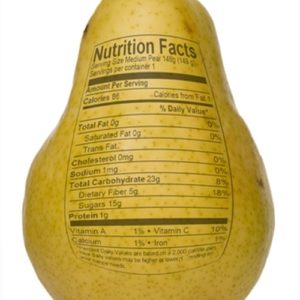
According to the Nielsen study, Americans tend to buy food based largely on specific words used by the producing or distributing agency in packaging and marketing. The results of the study were released in list format, measuring how much revenue could be attributed to certain words used in the packaging or labeling of food products. The single most significant example was “natural.” The food industry as a whole sells nearly $41 billion worth of food annually bearing the label “natural.”
Here’s the issue, though: the word natural, insofar as its relation to food products, means almost nothing. In fact, the FDA’s definition, as posted on their website, only rules out three factors in determining which items can be referred to this way.
“From a food science perspective,” their website reads, “it is difficult to define a food product that is ‘natural’ because because the food has most likely been processed and is no longer a product of the earth. That said, FDA has not developed a definition for use of the term natural or its derivatives. However, the agency has not objected to the use of the term if the food does not contain added color, artificial flavors or synthetic substances.”
Once this definition, or absence thereof, is taken into account, it becomes clear that the marketing of products under such a moniker is at least somewhat suspect. The list continues on to reveal a plethora of other ambiguous terms responsible for strong drive in revenue into the food industry. While any sort of reaction would require more widely spread information regarding the issue, Temple Northup, a professor at the University of Houston, insists that consumers are indeed being taken for a bit of a ride.
“Food marketers are taking advantage of them [consumers] by misleading those consumers with deceptive labeling,” Northup told the LA Times.



